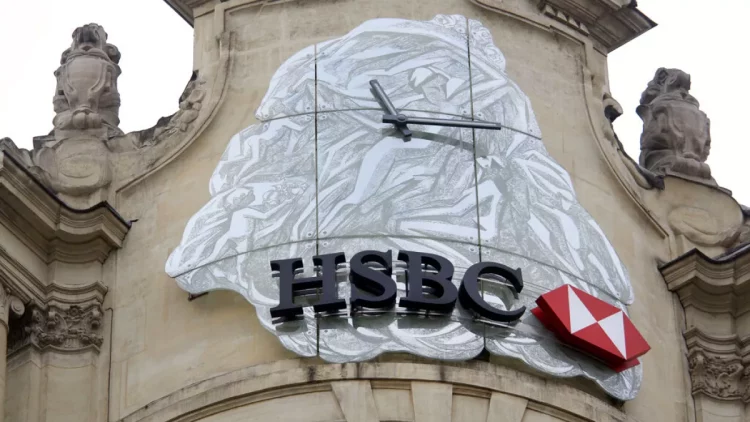The European banking sector has undergone significant transformations in recent years, driven by a combination of external shocks, technological advancements, and shifting regulatory landscapes. As Europe continues to recover from the effects of the COVID-19 pandemic, the banking industry faces a unique set of challenges that could reshape its future. From the rapid rise of digital banking and fintech to the need for stronger regulatory frameworks, European banks must adapt to remain competitive. At the same time, there are numerous opportunities for growth, innovation, and strategic partnerships that could redefine the financial landscape.
This article delves into the key challenges facing European banks in the post-pandemic era, explores the disruptive impact of digital banking and fintech, and discusses the potential opportunities for growth and innovation. We also make predictions for how European banks will evolve and adapt to future financial trends.
A Look at the Challenges Facing European Banks in the Post-Pandemic Era
The COVID-19 pandemic has left an indelible mark on global financial systems, and European banks are no exception. With interest rates at historic lows, the traditional banking model based on interest rate spreads between loans and deposits has come under pressure. As the economy emerges from the pandemic, European banks must navigate several challenges that could hinder their recovery and long-term growth.
Low-Interest Rates and Economic Recovery
One of the most significant challenges facing European banks in the post-pandemic era is the persistently low interest rate environment. The European Central Bank (ECB) has kept interest rates near zero in an effort to stimulate economic growth, making it difficult for banks to generate profits from traditional lending activities. While low rates have been beneficial for borrowers, they have squeezed the profitability of banks that rely on interest income.
Moreover, despite the recovery from the pandemic, the economic environment remains uncertain. The risk of stagflation—high inflation combined with low economic growth—has prompted fears about the long-term sustainability of the European banking sector. Rising inflation, coupled with ongoing supply chain disruptions and geopolitical uncertainties, poses a significant risk to the stability of financial institutions.
Regulatory Pressures and Compliance
The regulatory environment for banks in Europe has become increasingly complex in recent years. European banks are subject to stringent rules and regulations, including the Basel III framework, which requires higher capital buffers to reduce systemic risks. While these regulations have helped to strengthen the banking sector post-2008 financial crisis, they also impose significant operational costs on banks.
In addition to traditional regulatory pressures, European banks are facing increasing scrutiny over issues such as climate risk and sustainability. The European Union’s Sustainable Finance Disclosure Regulation (SFDR) and the EU Taxonomy Regulation require financial institutions to disclose how they integrate environmental, social, and governance (ESG) factors into their decision-making processes. Compliance with these regulations is not only costly but also requires banks to adopt new systems and frameworks to monitor and report ESG risks.
Cybersecurity Threats and Data Privacy
As banks increasingly rely on digital channels and online platforms, the risk of cyberattacks and data breaches has become a growing concern. The European banking sector has witnessed a surge in cybercrime, including data breaches, ransomware attacks, and fraud. Banks are under immense pressure to invest in robust cybersecurity measures to protect sensitive customer information and maintain public trust.
At the same time, European regulators are placing increasing importance on data privacy and consumer protection. The General Data Protection Regulation (GDPR) has set a high standard for data protection in the European Union, and banks must ensure they comply with these rules to avoid costly penalties and reputational damage.
The Impact of Digital Banking and Fintech on Traditional Financial Institutions
The rise of digital banking and fintech has dramatically altered the landscape of the European banking sector. Fintech startups, challenger banks, and digital-only platforms have disrupted traditional banking models, offering consumers greater convenience, lower fees, and faster services.
The Growth of Digital-Only Banks
Digital-only banks, such as Revolut, N26, and Monzo, have gained significant traction in Europe, especially among younger consumers who are more tech-savvy and comfortable with online services. These digital-first platforms offer a range of financial products, from current accounts to investments and loans, without the need for physical branches. As they are not burdened by legacy systems and infrastructure, digital banks can operate more efficiently, passing on cost savings to customers.
The rise of these challenger banks has put pressure on traditional European banks, which are struggling to compete with their digital counterparts. While established banks still hold a significant market share, particularly in areas such as corporate banking and wealth management, they must now invest heavily in technology and digital transformation to remain relevant.

Fintech Innovations and Payments Solutions
Fintech companies have also made waves in the payments sector. Digital wallets, peer-to-peer (P2P) payment systems, and contactless payment solutions are becoming mainstream in Europe. Companies like PayPal, TransferWise (now Wise), and Stripe have revolutionized the way consumers and businesses make payments, challenging traditional payment processing systems and banks’ role as intermediaries.
Moreover, innovations in blockchain technology and cryptocurrencies are disrupting the financial services sector, creating new avenues for cross-border payments, decentralized finance (DeFi), and smart contracts. While many traditional banks have been slow to adopt these technologies, some are beginning to explore partnerships with fintech firms or developing their own blockchain-based solutions.
Open Banking and API Integration
Open banking, which allows third-party providers to access bank customers’ data (with their consent) to offer financial services, is another major development. In Europe, the EU’s revised Payment Services Directive (PSD2) has mandated that banks open their data to authorized third-party providers, fostering competition and innovation.
This move toward open banking has created opportunities for fintech firms to develop new products and services, such as budgeting tools, personalized financial advice, and peer-to-peer lending platforms. Traditional banks must now navigate this shift by adopting application programming interfaces (APIs) and collaborating with fintech firms to deliver more customer-centric services.
Potential Opportunities for Growth and Innovation in the Banking Sector
Despite the challenges facing European banks, there are numerous opportunities for growth and innovation. By embracing digital transformation, improving customer experience, and expanding into new markets, European banks can thrive in the evolving financial ecosystem.
Expansion of Digital Services
The ongoing shift to digital services presents a significant opportunity for European banks to expand their offerings and reach new customer segments. Banks can invest in mobile banking, AI-driven customer service, and personalized financial products to attract and retain customers. By leveraging data analytics and machine learning, banks can provide more tailored services, such as dynamic pricing, predictive financial planning, and enhanced risk management.
ESG Investments and Green Finance
As Europe focuses on achieving its climate goals, the demand for sustainable and green financial products is on the rise. European banks can tap into the growing market for ESG (Environmental, Social, Governance) investments by developing green bonds, sustainable investment funds, and other ESG-related financial products. Additionally, banks can integrate ESG criteria into their lending practices, offering financing to businesses that prioritize sustainability and reducing their own carbon footprint.
Partnerships with Fintech Companies
Rather than viewing fintech firms as competitors, European banks have an opportunity to partner with these innovative companies to enhance their digital offerings. By collaborating with fintech startups, banks can access new technologies, expand their customer base, and reduce operational costs. Strategic partnerships with fintech companies can help banks integrate new payment solutions, improve cybersecurity, and develop new digital products that meet customer demand.
Predictions for How European Banks Will Adapt to Future Financial Trends
Looking ahead, European banks will likely continue to face a highly competitive environment shaped by both traditional financial players and new fintech entrants. The future of European banking will be defined by several key trends:
- Increased Digitization: European banks will invest heavily in technology and digital platforms to remain competitive. This will include the adoption of artificial intelligence (AI), machine learning, and blockchain to streamline operations, improve customer experience, and enhance security.
- Regulatory Evolution: As regulatory pressure increases, European banks will need to adapt to new compliance requirements, particularly around ESG, data privacy, and digital innovation. Banks that embrace regulatory changes and invest in compliance systems will be better positioned for long-term success.
- Greater Collaboration with Fintech: Banks will increasingly collaborate with fintech firms to offer innovative products and services. This could include partnerships in areas such as digital wallets, lending platforms, and insurance technology.
- Focus on Sustainability: As the demand for green and sustainable financial products grows, European banks will prioritize ESG investments and integrate sustainability into their core business models. Banks that successfully align with Europe’s sustainability goals will likely attract both consumers and investors who prioritize ESG factors.
Conclusion
The European banking sector stands at a crossroads, with numerous challenges and opportunities ahead. While low-interest rates, regulatory pressures, and the rise of fintech pose significant hurdles, the sector’s ability to innovate, adapt, and collaborate will determine its future success. By embracing digital transformation, focusing on sustainability, and leveraging strategic partnerships, European banks can navigate the evolving financial landscape and position themselves for long-term growth.






























